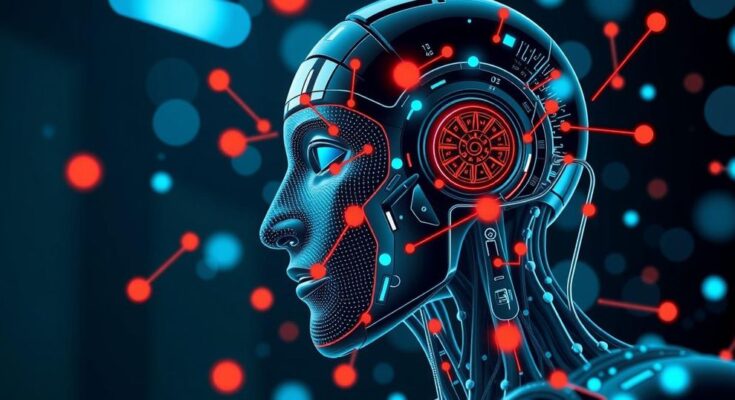AI’s rise is reshaping the workplace, driving productivity growth across sectors. Despite fears of job loss, studies suggest AI will create new opportunities rather than eliminate them. Sectors like healthcare, automotive, and e-commerce are seeing AI’s transformative effects. Job seekers must adapt to AI-driven hiring processes and enhance their skills to thrive in this evolving landscape.
Artificial intelligence (AI) has firmly established its presence in discussions of technology and employment. The misconception that AI primarily affects the tech industry overlooks its growing influence across all sectors. Recent data shows a 270% increase in AI implementation in business, leading to productivity gains and more job opportunities, not fewer. While fears loom regarding job displacement, studies suggest AI will enhance innovation rather than replace human workers. AI’s essential feature is its ability to learn and improve, distinguishing it from traditional algorithms. Current trends reveal that AI is impacting diverse fields such as medicine, automotive, cybersecurity, and e-commerce. In healthcare, for instance, AI analyzes extensive data to predict outcomes and assist in diagnostics. The automotive industry witnesses advancements in autonomous vehicles, while AI fortifies cybersecurity through threat detection and response. E-commerce is transformed as AI optimizes customer experiences and operational efficiencies. Hence, understanding AI’s efficacy and limitations is crucial for adapting to its integration. Moreover, AI plays a pivotal role in the hiring process, with up to 75% of resumes rejected by applicant tracking systems before reaching human eyes. Hiring managers have reported that AI streamlines recruitment efforts, but concerns about bias persist. As such, job seekers must utilize AI-driven tools to enhance their applications and improve their chances of landing positions. Resources like Jobscan, Jobseer, and Rezi offer assistance in optimizing resumes for automated screening systems. To stay relevant, individuals should focus on enhancing their AI skills. The demand for AI and machine learning expertise is projected to grow significantly in coming years. Free online courses provide a rich opportunity for skills expansion, whether for technical adeptness or foundational knowledge. Embracing AI’s presence is imperative, as adapting will pave the way for success amidst technological advancements. Ultimately, the future beckons a collaborative relationship between humans and intelligent technologies, heralding innovation and growth in the labor landscape.
The article explores the increasing role of AI in various sectors and its implications for the future of work. With a surge in AI adoption, businesses are harnessing its potential to innovate and improve productivity. Concerns arise surrounding job displacement, yet recent studies indicate that AI is more likely to create opportunities rather than eliminate them. The necessity for human intelligence and judgment remains vital, especially as AI continues to evolve and integrate into everyday processes.
AI is transforming the workplace by enhancing productivity and fostering innovation across industries. While concerns about job loss persist, evidence suggests that AI will create more roles than it displaces. Upskilling in AI-related knowledge will be essential for job seekers to remain competitive in the evolving job market. The narrative of humans and AI collaborating for a prosperous future is unfolding, encouraging adaptation and growth.
Original Source: www.forbes.com



